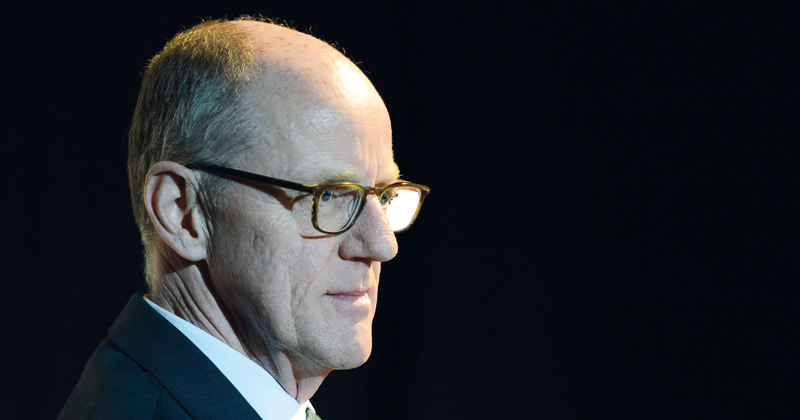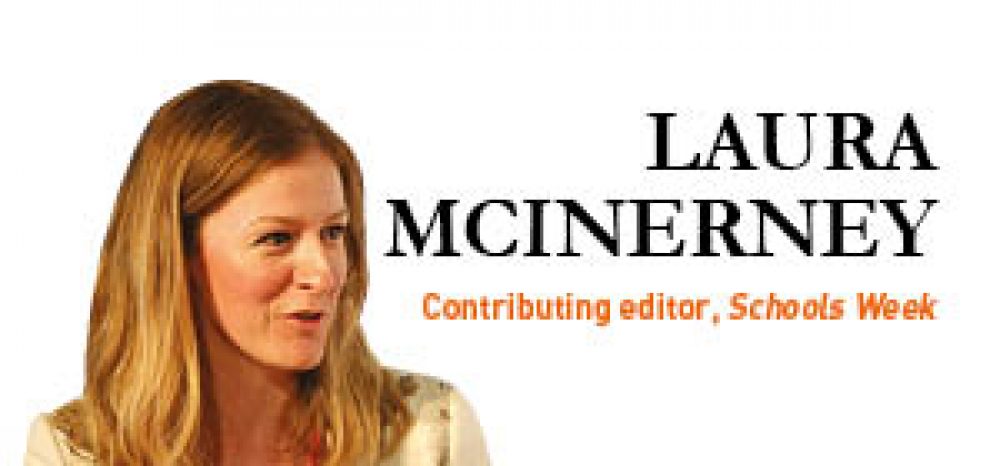It is beyond tedious to watch two ministers argue in public over the meaning of the word ‘skills’ when they could be fixing education, writes Laura McInerney
One of my favourite questions to ask people is this: “If you were invisible for the day, what would you do?” It always throws them off.
Sometimes they ask me, and I’ve never had a good answer of my own. But this week, if I could’ve been invisible on Monday, I’d have dearly loved to be in the room when schools minister Nick Gibb heard his boss, the education secretary Damain Hinds, praising “soft skills”.
Gibb hates the “skills” word in the way that most of us hate the words “SATs” or “Michael Gove”. But education secretaries have an annoying habit of suggesting skills might be quite important.
Education secretaries have an annoying habit of suggesting skills might be quite important
Justine Greening claimed she was leading a “skills revolution” at the Conservative Party conference.
Unfortunately, that same week, we learned that Gibb had banned civil servants from using the word ‘skills’ in his correspondence because “he doesn’t believe they exist”, a source let slip.
Hinds went a step further.
In a somewhat confused speech at the Education World Forum last Monday he not only said that he believes in “soft skills” – cue hyperventilation from Gibb – but that “there is nothing soft” about them.
No brown paper bag in the world was big enough to stop that panic attack.
Merrily, Hinds continued: “The hard reality of soft skills is that actually these things around the workplace and these things around character and resilience are important for what anybody can achieve in life, as well as for the success of our economies. They’re not exactly the same thing, character and workplace skills, but there obviously is some overlap.”
Then, the kicker, the line that must’ve stabbed at Gibb’s heart.
“I don’t suggest they can just be taught,” said Hinds, before pointing out they are also learned via ethos, extracurricular activities, yadda-yadda.
But the damage was already done, for in saying they are not “just” taught he also implied that they “can” be taught.
In my dreams of invisibility I see the exact moment that steam begins pouring out of Gibb’s ears. But then, he grabs a pen. Because he remembers that the very next day at the Education Forum, he also has a speaking slot.

And so it was that on Tuesday, in front of the same global audience, schools minister Gibb finally let the word “skills” slip from his lips.
In fact, 610 words of his 1,500-word speech were dedicated to skills, and to explaining precisely why, when the government says “skills”, it really means “knowledge-based skills”. Not “skills-based skills” or “21st century skills”, but skills that look a lot like “knowing maths”. After all, musicians become proficient by learning scales so kids can’t be creative without knowing about the First World War. Obviously.
This is very cute if you’re into masturbatory inter-ministerial argument, about which I’m sure there’s a bigger point to do with progressives and traditionalism and all that stuff that a small group of people like to bang on about.
But let’s get real.
At the exact time these speeches were happening, half a million teachers were overseeing eight million children already learning a bunch of “knowledge” and practising a clutch of “skills”.
Some of what they were doing is dictated by what we know about curriculum (and we certainly need to know more) and some is dictated by old habits. None of it is affected by weird word-wars put on for show.
Schools don’t need ministers to lock horns over philosophy, they need them to stop pratting about with cheap shots and nonsense, and instead come up with actual solutions to actual problems and announce those.
Laura McInerney is contributing editor of Schools Week



Your thoughts